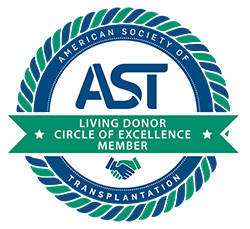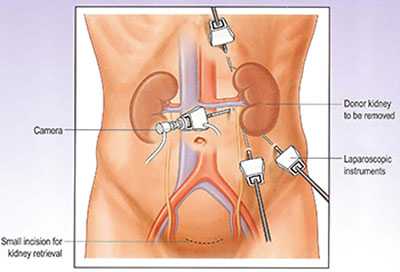Living kidney donation
The decision to donate a kidney requires careful consideration. Kidney donors are special people, willing to share a gift that can only be given once to better another person's life.
Whether you are considering becoming a living donor for a family member, friend or someone you don’t know at all, we encourage you to contact our living donor coordinator, either by calling 703-776-8053 or by completing our online form
Becoming a living kidney donor
There are many steps to become a living donor. Follow the links below to learn more about the details of the donor process. We want to be certain that ALL of your questions are answered fully. We encourage you to take as much time as you need to feel comfortable with your decision.
Please know that the Inova Kidney and Pancreas Transplant team members are here to care for your friend, family member or loved one who needs the kidney. But we are also here to protect you, both physically and emotionally.

 Inova is proud to be a member of the American Society of Transplantation's Living Donor Circle of Excellence program.
Inova is proud to be a member of the American Society of Transplantation's Living Donor Circle of Excellence program. The surgery
The surgery